Now is the time to act on Rohingya crisis

Despite hosting over a million Rohingya refugees for seven years, Bangladesh lacks a policy measure to manage and regulate these Myanmar nationals on its soil. With Myanmar descending into a civil war, the number of Rohingya refugees is increasing, adding to an already overwhelming crisis. According to a policy brief by the European Union, there are several agreements between Bangladesh and relevant parties to protect the rights of Rohingya. However, the absence of national policy frameworks complicates managing their identification, movement, and protection, creating uncertainty for displaced populations and host communities.
Though several security issues are coming to the forefront with the recent change in government in Bangladesh, the Rohingya people have received little attention so far. Chief Adviser Dr Muhammad Yunus called for the expedited resettlement of Rohingya refugees to third countries, but no country or international organisations have shown much interest in proceeding with that. Under such circumstances, it's expected that the Rohingya will remain in the country a bit longer.
Bangladesh has earned a chance at a new start, which should include addressing the significant number of people accommodated by one of its most important tourist cities. Due to the lack of an asylum policy, the government has little control over the movement and regulations of the refugees. The Rohingya people have been leaving camps to take up jobs in the host community without permits, replacing local labour and straining the economy. A local resident told Prothom Alo, "You need to pay a local labourer Tk 600 daily, but a Rohingya does the same job for Tk 200-300. Naturally, they get hired first." Though UNHCR assists with registration and identification, and security forces oversee their movement, the absence of a robust policy hampers effective coordination due to unclear guidelines. Adding to the economic strain are security concerns, with reports of Rohingya people getting involved in criminal activities. A Rohingya leader told Reuters, "A series of murders of Rohingya men, including some leaders, at the camps have sparked fear and concern about militant groups gaining power and local authorities failing to curb increasing violence." These issues not only jeopardise the safety of host communities but also stigmatise the displaced population, making it harder to foster coexistence.
With Dr Yunus, a Nobel Peace laureate, leading the government, a durable solution is expected to come to the discussion table. However, in last year's August, the foreign affairs ministry adviser declared that Bangladesh couldn't accept one more Rohingya, while Dr Yunus reaffirmed support without suggesting actionable policies. These mixed signals underscore that a clear asylum policy is essential to managing the crisis effectively and strengthening Bangladesh's role in addressing forced displacement globally.
Since Bangladesh is not a signatory to the 1951 Refugee Convention, it doesn't identify the Rohingya as "refugees" and prefers to label them as Forcefully Displaced Myanmar Nationals (FDMNs). While this designation may avoid legal obligations tied to the convention, it does little to resolve the realities of hosting these people indefinitely.
In this case, the government can form a reform commission to develop policies for all foreign nationals seeking or receiving asylum. The commission, headed by a refugee and migration specialist, should create a white paper to suggest the rights and restrictions for asylum seekers and receivers to the government and stakeholders. This must include ensuring their safety and access to essential services while specifying restrictions on movement. It needs to determine the form and extent of retribution upon breaking domestic laws. Instead of modeling the policy on any other country's example, it should be tailored to Bangladesh's recent political transition. It should reflect the shift from an authoritarian government that neglected the crisis to a more accountable leadership based on change demanded by the public.
The policy should also be adaptable to future needs. Most importantly, it should advocate for and create pathways towards durable solutions. This policy framework should demonstrate that Bangladesh is temporarily hosting the Rohingya and providing all kinds of accommodation and protection; nonetheless, there needs to be a long-term solution.
While repatriation might not be an immediate solution, ways to push for resettlement should be mentioned. Countries must increase their commitments to resettle Rohingya people and provide support for managing the crisis. Besides, if there are scopes for local integration, that should also be discussed.
Bangladesh has an opportunity to lead by example, showing that even non-signatories to the Refugee Convention can uphold the principles of humanity and responsibility. The current government must seize this moment to turn the rhetoric of support into actionable reforms.
Jubaida Auhana Faruque is pursuing master's in public and international affairs at the University of Pittsburgh in the US.
Views expressed in this article are the author's own.
Follow The Daily Star Opinion on Facebook for the latest opinions, commentaries and analyses by experts and professionals. To contribute your article or letter to The Daily Star Opinion, see our guidelines for submission.

 For all latest news, follow The Daily Star's Google News channel.
For all latest news, follow The Daily Star's Google News channel. 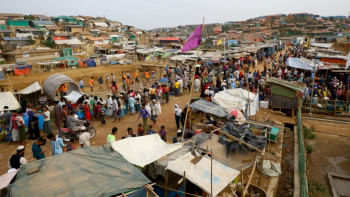
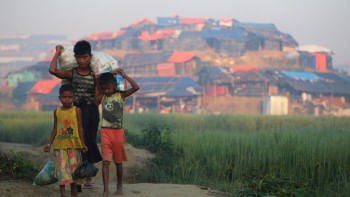



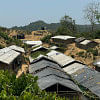

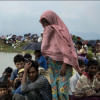
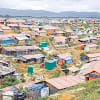


Comments